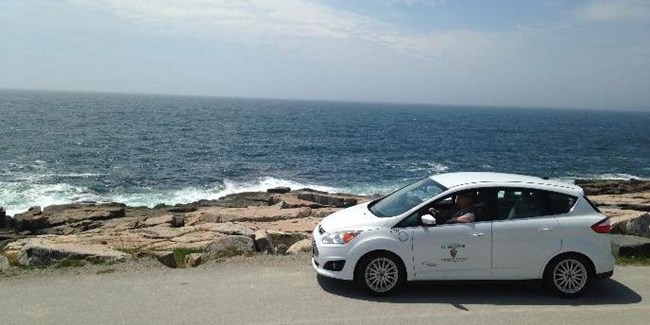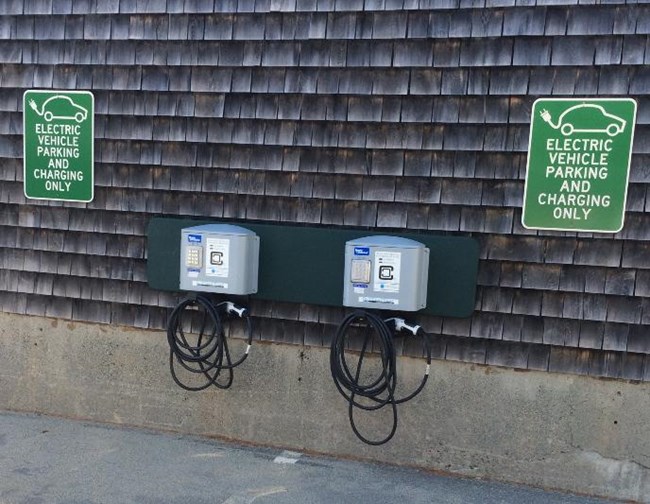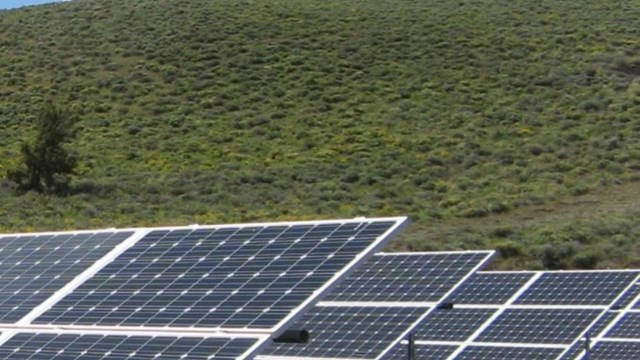
NPS You can join the National Park Service in our efforts to go green! Together we can cut emissions and conserve fuel to reduce air pollution and fight climate change. During you visit you can better protect the resources under our stewardship so that future generations can enjoy them. Before Your VisitIt can be harder to be green when you're traveling. But with a little advance planning there are simple steps you can take to shrink your carbon footprint on the road as well as at home.
During Your Visit To AcadiaLearn About AcadiaEveryone can join the effort to protect Acadia. Visit our environmental threats page to learn more about the challenges facing Acadia and the management strategies we take help protect Acadia for future generations. While You DriveIdling a vehicle truly gets you nowhere: It reduces fuel economy, produces air pollutants, and wastes resources. Idling a car uses a quarter to a half gallon of fuel per hour, and idling a heavy-duty vehicle uses about one gallon per hour. Researchers estimate that vehicle idling in the United States wastes about six billion gallons of fuel annually. That translates to 60 million tons of CO2 and $22 billion per year. Modern vehicles do not need to idle. Computerized controls in today's vehicles bring the engine up to operating temperature faster when the vehicle is moving than when it is idling. Even on the coldest day, a typical car engine takes less than five minutes to warm up if the car is moving. It takes almost twice as long if the car is just idling. Contrary to some myths out there, turning your car off and back on again does not use more fuel than idling. Idling can actually increase engine wear and shorten vehicle life. Efficient driving practices can improve your fuel economy by more than 30 percent. There are a number of tactics you can implement to cut your fuel use and emissions.
You can cut emissions and fuel use by reducing the number of miles of vehicle travel. Try carpooling or using alternative modes of transportation like the Island Explorer, such as walking, bicycling, and public transit. Many of these options are healthier for you, save money, and make for a more enjoyable trip. While You Are Out And About Follow the seven principles of Leave No Trace during your visit.
What We're Doing to Go Green
NPS Alternative Fuels and Advanced VehiclesMany alternative fuels and advanced vehicles can significantly reduce emissions, fuel costs, and reliance on petroleum. The NPS has teamed up with Clean Cities to support projects that increase the use of these fuels and technologies in parks. Across the country, parks are operating buses that run on compressed natural gas, biodiesel, or propane;conventional ranger vehicles are being replaced with fuel-efficient hybrid electric vehicles; and plug-in electric vehicles are being deployed in parks in Alaska, Tennessee, California, Maine and other locations. Take advantage of the benefits of these fuels and technologies the next time you rent or purchase a vehicle—or maybe even in your existing vehicle. There are now more than 11,000 publicly accessible alternative fueling stations and electric charging stations in the U.S. What Are Other Parks Doing to Go Green?Find out more about what other parks are doing to go green using the links below. 
Climate Change and All National Parks
Learn more about how climate change affects all national parks and the treasures they protect. 
Sustainability
Learn about how the NPS strives to be a model for sustainable resource management. |
Last updated: April 20, 2022
